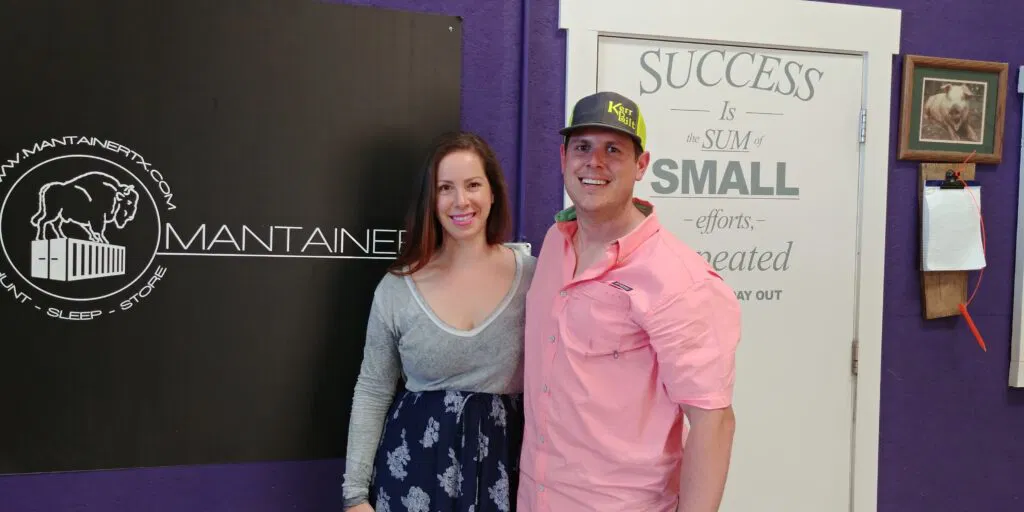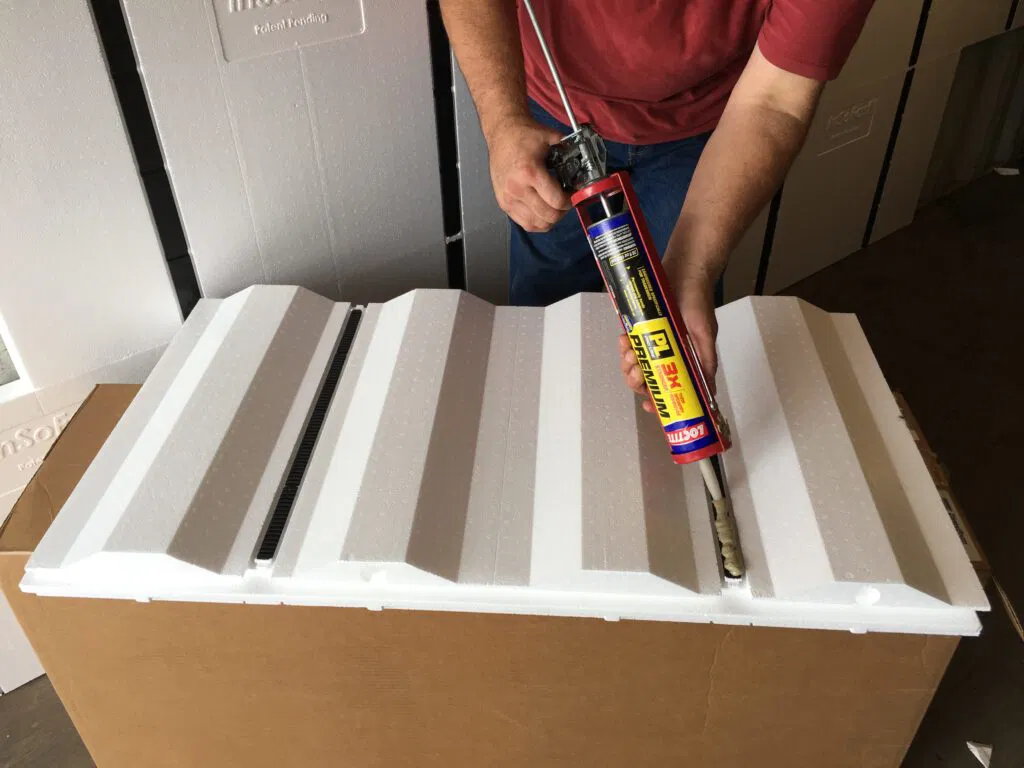

InSoFast is excited to be associated with a professional shipping container conversion company, like Mantainer out of Texas. This is the 1st video and blog post of a 3-part series of interviews where Denver Sheddy discusses the trials and tribulations of growing a successful shipping container conversion company.
PART ONE-GLUE.
1. Where did the Maintainer name come from?
“My wife coined the phrase a blending of the classic, “MAN CAVE,” and container to create “Mantainer.”
2. Where did you learn about InSoFast?
“I saw one of your ads on google or Pinterest for basements. I clicked in and could not believe that there were container inserts. It ended some sleepless nights for me on how we are going to insulate and frame a container and do what we need to do?”
We are happy with InSoFast. Especially since the carpenters who were with me are no longer with me. It was tough with them, they loved wood and traditional builds. The old saying training old carpenters’ new tricks, it can be challenging… in a fast pace, changing industry like container conversions. I see retraining the next group will be easier since they will start with InSoFast instead of being told to change. Old experiences carpenters think wood is the best way to go, mainly because it is what they know.
4. When using a moisture cured adhesive, like Loctite PL Premium, between two non-porous materials like InSoFast and a steel container, it helps to mist the panel.
“Yes, on our next container we are going to mist the panels like you suggest. After 24 hours we pulled our braces off the panels and they were rock solid. It will be interesting to see how the glue performs in hotter weather.
5. The issues you will have with the glue is the hotter the temperature the thinner or the better the glue will flow out of the gun, but the less initial grab the Loctite PL will have, so you will end up bracing the panels earlier but the faster the glue will cure. Less open time.
“With the glue on cold nights we stored it inside to keep it warm. The guys still complained, griped, the caulk guns really tired out their hands. So, we will invest in some electric caulk guns.”

6. Any other thoughts on gluing InSoFast to your container builds?
We are transporting our finished shipping container tomorrow, and at first, I had some reservations about the glue, will the glue hold up? But now I feel that the walls are solid. This is the way all construction is going to go with adhesive.
7. At InSoFast we don’t like to punch a bunch of holes into a wall whether in a basement or in a container build, what are your thoughts?
We try to avoid holes into a container, unless you have to. When we were welding our frames into containers we would get blow outs and burn thoughts that we would have to go patch. The integrity of a container is compromised when you start punching holes in it. Then you have potential water entry point. As soon as you start drilling holes in the floors, the ceiling, and the walls it’s just not a container.

